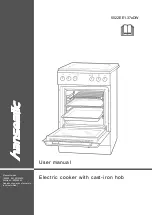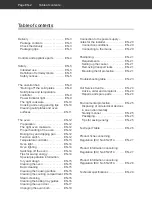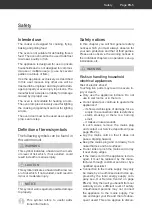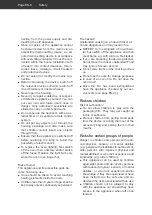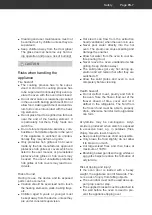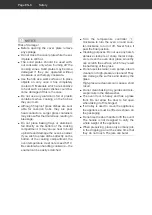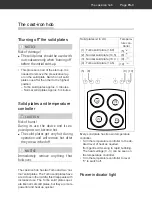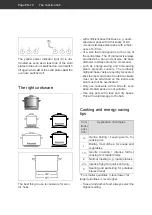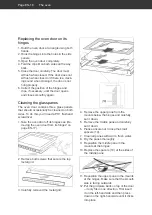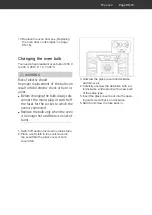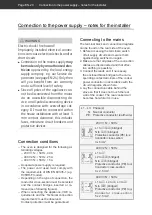
Page EN-12
The oven
The oven
Preparation
1. Remove any polystyrene, cardboard and
plastic safety parts from the oven and
baking trays.
2. Remove all protective films.
3. Thoroughly clean the oven before first
use (see page EN-15).
The right oven cookware
– Pots with heat-resistant handles can be
recognised by the label indicating ‘heat re-
sistant up to 280°C’.
– Fire-proof dishes made of glass, porcelain,
ceramic and clay or cast iron.
– In particular, ovens with top and bottom
heat require dishes and trays with good
heat transfer, preferably metals which have
been painted black, as these allow cakes
to brown nicely.
– Good results can also be achieved with
coated or non-coated aluminium trays.
Proper handling of the oven
CAUTION!
Fire hazard!
■
Only ever operate the oven with the
oven door closed.
■
In case of an oven fi re:
–
Switch off the circuit break-
ers/unscrew fuses
–
Do
not
open the oven door until
the fire is extinguished
■
Never
extinguish burning oil or fat
with water! To extinguish the fi re, use
a suitable fi re extinguisher with the
designation ‘F’ or a fi re blanket.
■
Once the fi re has been extinguished,
have the appliance checked by our
Service team (see page EN-24).
NOTICE
Pent-up heat can damage the oven’s
enamel.
■
Do not place baking trays or alumini-
um foil directly on the bottom of the
cooking compartment.
■
If you wish to place dishes directly on
the bottom of the cooking compart-
ment, the oven temperature must not
exceed 50°C. Be careful when han-
dling cookware – the enamel can be
easily scratched.
Baking tray and dripping pan
(b)
(c)
The supplied baking tray (b) and the dripping
pan (c) both have an angled edge. Please en-
sure that this edge is facing forward on being
placed in the oven.
Function switch
(11)




